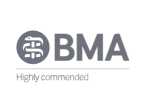Identifying and managing medication overuse headache
Medication overuse disorders are a worldwide phenomenon, occurring in both rich and poor societies, and they play a significant role in converting episodic headache to chronic forms. The burden of disease is significant due to high costs and comorbidities.
Unfortunately, patients, and even some physicians, are often unaware of this phenomenon. It is important for physicians to raise awareness and to address the risks of medication overuse with their patients through effective communication.
Medication overuse headache is defined as a preexisting primary headache that has worsened significantly, or has evolved into a new type of headache, in association with medication overuse.
Medication overuse headache occurs at least 15 days per month, and the patient must have overused medication for a minimum of three months. Medication overuse headaches are near daily and refractory to medicines. There may be associated depression, irritability, anxiety, and cognitive complaints. Their location and intensity are variable.
What medications can lead to medication overuse headache?
Almost any medication—such as decongestants, opioids, and anxiolytics—when overused, can contribute to medication overuse headache.
The medications most commonly associated with overuse headaches include combination analgesics (especially those containing the short-acting barbiturate, butalbital caffeine) and aspirin or acetaminophen. This combination is frequently used in the United States.
These drugs are also sometimes also combined with codeine. Codeine mixed with caffeine or ergotamine was frequently implicated in medication overuse headaches, so its use declined when triptans became widely available. But, triptan overuse has also been documented to cause medication overuse headache syndrome.
Become a great clinician with our video courses and workshops
Diagnosing a medication overuse headache
In the International Classification of Headache Disorders (ICHD-3), medication overuse headache is a separate entity next to mostly primary headache disorders.
Medication overuse headache as a complication of a primary headache disorder
Many headache specialists see this disorder as a complication of certain primary headache disorders, including new daily persistent headache, chronic migraine, or tension-type headache, and hemicrania continua.
For example, analgesics may be overused by migraine sufferers because in addition to the physical disability during migraine, many patients experience a condition between attacks known as interictal burden. This is basically pre-event preoccupation or concern about future attacks, and may result in anticipatory treatment, resulting in overuse of either acute relief or abortive medications.
Medication overuse headache as a complication of a secondary headache disorder
Secondary headache disorders may also lead to analgesic overuse disorders. Two secondary headache disorders to consider are venous sinus thrombosis and giant cell arteritis.
Barriers to accurate diagnosis of medication overuse headache
Eliciting the information required to render this diagnosis may be difficult, as the patient may not fully reveal their use of medicines. Additionally, they may take more than one drug, and discerning which is the culprit can be difficult. Furthermore, patients who consult multiple physicians for their headache disorder are likely to have been prescribed multiple medicines for their problem.
A headache diary and careful history of drug intake is key to affirming the diagnosis.
Management of analgesic overuse headache
Withdrawal
Management of medication overuse should include detoxification with decreased use of acute care medication. Withdrawal may become evident when the medication is unavailable or stopped, but still, withdrawing the offending drug is the treatment of choice.
Withdrawal symptoms to watch out for may include nausea, vomiting, hypotension, tachycardia, restlessness, sleep issues, and anxiety. Sometimes withdrawal is done as an inpatient.
Stopping the original medication usually, but not always, results in improvement. If there is no improvement, one cannot conclude that medication overuse headache is not present.
Prophylaxis
Although it has been taught traditionally that no prophylactic regimen is effective while the patient continues to take the offending medication, many physicians start a prophylactic regimen at the same time as withdrawal.
A comprehensive program includes the use of preventive medications in order to reduce dependence on acute care medication. Many prophylactic drugs have been used, including valproate, corticosteroids, intravenous dihydroergotamine, neuroleptics, and amitriptyline.
A long-term treatment plan, including behavioral therapy, migraine preventive medication, and appropriate acute care therapy may be optimal in treating patients with medication overuse headaches.
That’s it for now. If you want to improve your understanding of key concepts in medicine, and improve your clinical skills, make sure to register for a free trial account, which will give you access to free videos and downloads. We’ll help you make the right decisions for yourself and your patients.
Recommended reading
- Chou, DE. 2018. Secondary headache syndromes. Continuum (Minneap Minn). 24: 1179–1191. PMID: 30074555
- Ferguson, LW and Gerwin, R. 2005. Clinical Mastery in the Treatment of Myofascial Pain. Baltimore: Lippincott Williams & Wilkins.
- Fernández-de-las-Peñas, C, Arendt-Nielsen, L, and Gerwin, R. 2010. Tension-Type and Cervicogenic Headache—Pathophysiology, Diagnosis and Management. Sudbury: Jones and Bartlett Publishers.
- Goadsby, PJ and Silberstein, SD. 1997. Headache. Boston: Butterworth-Heinemann.
- Goadsby, PJ, Silberstein, SD, and Dodick, DW. 2005. Chronic Daily Headache for Clinicians. Hamilton: BC Decker.
- Green, MW. 2012. Secondary headaches. Continuum (Minneap Minn). 18: 783–795. PMID: 22868541
- Silberstein, SD, Lipton, RB, and Goadsby, PJ. 2002. Headache in Clinical Practice. 2nd edition. London: Martin Dunitz.
- Tsakadze, N, Antonovich, N, and Rossi, F. 2018. Medication-overuse headache. Practical Neurology. 17: 50–52. https://practicalneurology.com/articles/2018-feb/medication-overuse-headache
Become an expert



